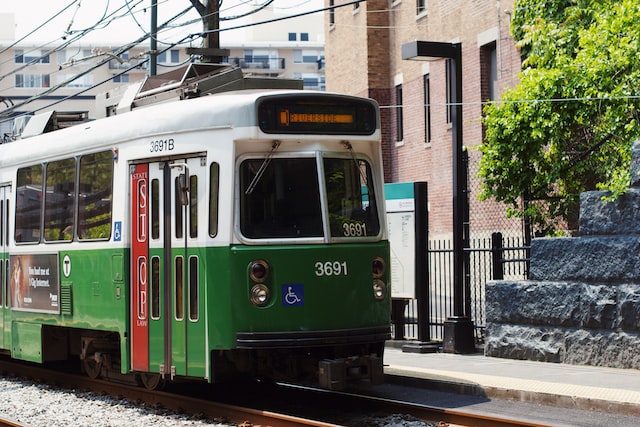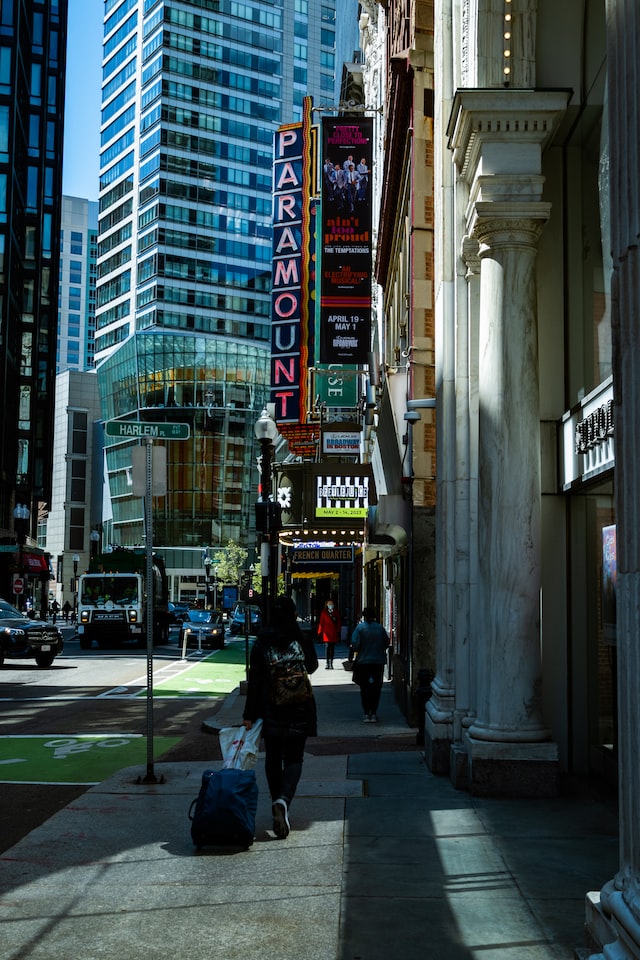
Homes for rent: Boston Theater District Apartments for Rent
Homes for sale: Boston Theater District Homes for sale
About Boston Theater District Massachusetts
The Boston Theater District is a section of downtown Boston that is home to a number of historic theaters and performing arts venues. It is located in the heart of the city and is a popular destination for theatergoers and tourists alike.
The Boston Theater District is home to a number of important theaters, including the Opera House, the Wang Theater, and the Cutler Majestic Theatre. These theaters host a variety of performances, including Broadway shows, concerts, and plays. The district is also home to the Boston Ballet, the Boston Symphony Orchestra, and the Boston Lyric Opera, which are some of the city's most respected performing arts organizations.
In addition to its theaters, the Boston Theater District is also home to a number of restaurants, bars, and other entertainment options. It is a lively and vibrant part of the city and is a popular destination for locals and visitors alike.
The Boston Theater District is an important cultural hub in the city and is a testament to Boston's rich history and vibrant arts scene. It is a must-visit destination for anyone interested in the performing arts and is a great place to experience the best of what Boston has to offer.
History
The Boston Theater District has a rich history that dates back to the early 19th century, when the city's first theaters were built. These early theaters were small, intimate venues that were used for a variety of performances, including plays, operas, and concerts.
Over the years, the Boston Theater District has grown and evolved, and today it is home to a number of historic theaters and performing arts venues. The Opera House, which was built in the 1920s, is a grand neoclassical theater that has played host to a wide range of performances, including operas, ballets, and Broadway shows. The Wang Theater, which was built in the 1930s, is a lavish Art Deco venue that is known for its opulent interior and excellent acoustics. The Cutler Majestic Theatre, which was built in the early 20th century, is a stunning Beaux-Arts theater that is home to the Emerson College Department of Performing Arts.
The Boston Theater District is an important cultural hub in the city and is a testament to Boston's rich history and vibrant arts scene. It is a popular destination for theatergoers and tourists alike and is a great place to experience the best of what the city has to offer.

Things to do in Boston's Theater District MA
The Boston Theater District is a vibrant and lively part of the city that offers a wide range of things to do and see. Some of the top activities and attractions in the district include:
- Attend a performance at one of the district's historic theaters. The Opera House, the Wang Theater, and the Cutler Majestic Theatre are all excellent options. These venues host a variety of performances, including operas, ballets, Broadway shows, and concerts.
- Explore the district's many restaurants and bars. The Boston Theater District is home to a number of excellent dining and drinking establishments, ranging from upscale restaurants to casual pubs.
- Visit the Institute of Contemporary Art. This modern art museum is located in the heart of the district and features a rotating selection of exhibitions by emerging and established artists.
- Take a walking tour of the district. There are a number of companies that offer guided tours of the Boston Theater District, which provide an in-depth look at the history and architecture of the area.
- Check out a show at the Wilbur Theatre. This historic theater is located just outside the main Theater District and is known for hosting a variety of comedy, music, and theater performances.
Overall, the Boston Theater District is a great place to experience the best of what the city has to offer. Whether you're interested in the arts, dining, or just exploring the city, you'll find plenty to do in this vibrant and lively part of town.
Transportation
easily accessible by a variety of transportation options.
Public Transportation: One of the most convenient ways to get to the theater district is by public transportation. The area is served by a number of MBTA subway lines, including the Red, Orange, and Green Lines. The subway is a quick and easy way to get to the theater district from many parts of the city.
Car: If you prefer to drive, the theater district is also easily accessible by car. There are several parking garages located in the area, as well as metered street parking. However, it's important to note that parking in downtown Boston can be expensive and can be difficult to find on busy nights.
Ride-Sharing: Ride-sharing services such as Uber and Lyft are also popular options for getting to the theater district. These services allow you to request a ride from your smartphone and can be a convenient and cost-effective way to get around the city.
Overall, the theater district is well-connected to the rest of the city and is easy to reach by a variety of transportation options. Whether you prefer to take the subway, drive, or use a ride-sharing service, you'll have no trouble getting to the theaters and other attractions in the area.
Education
The Boston Theater District is home to a number of institutions of higher education, including Emerson College and the Boston Conservatory at Berklee. These schools are known for their strong programs in the performing arts and offer a range of degree programs in theater, dance, music, and other related fields.
It is known for its strong programs in the performing arts, as well as in communication and the liberal arts. The college has a number of state-of-the-art performance venues, including the Cutler Majestic Theatre, which is located in the heart of the theater district.
The Boston Conservatory at Berklee is another well-respected institution in the theater district. It is a performing arts college that offers degree programs in music, dance, and theater. The conservatory is located in the historic Fenway area and has a number of performance venues, including the Berklee Performance Center and the Boston Conservatory Theater.
In addition to these colleges, the theater district is also home to a number of other institutions of higher education, including Suffolk University and the Boston Architectural College. These schools offer a variety of programs in fields such as business, law, and design.
Overall, the theater district is a hub of higher education in Boston and is a great place for students interested in the performing arts and other related fields. It is home to a number of respected colleges and universities that offer a range of degree programs and provide students with access to state-of-the-art performance venues and other resources.
Living in Boston's Theater District
The Boston Theater District is a vibrant and lively part of the city that is home to a number of residential buildings, as well as a range of restaurants, bars, and other entertainment options. It is a popular place to live for people who enjoy the arts and want to be in the heart of the city.
Living in the theater district has a number of advantages, including easy access to a variety of performances and events. The area is home to a number of historic theaters and performing arts venues, such as the Opera House, the Wang Theater, and the Cutler Majestic Theatre, which host a range of performances, including operas, ballets, Broadway shows, and concerts.
The theater district is also located in the heart of downtown Boston, which means that it is convenient to many other parts of the city. It is easy to access other neighborhoods by public transportation or by walking, and there are a number of restaurants, bars, and other entertainment options located within the district.
One potential downside of living in the theater district is that it can be more expensive than other parts of the city. The area is popular and demand for housing is high, which can drive up rental and purchase prices. Additionally, parking can be difficult to find and can be expensive.
Homes for rent: Homes for rent in Boston Theater District, Massachusetts
Homes for sale: Homes for sale in Boston Theater District, Massachusetts
Official Link: https://www.boston.gov/